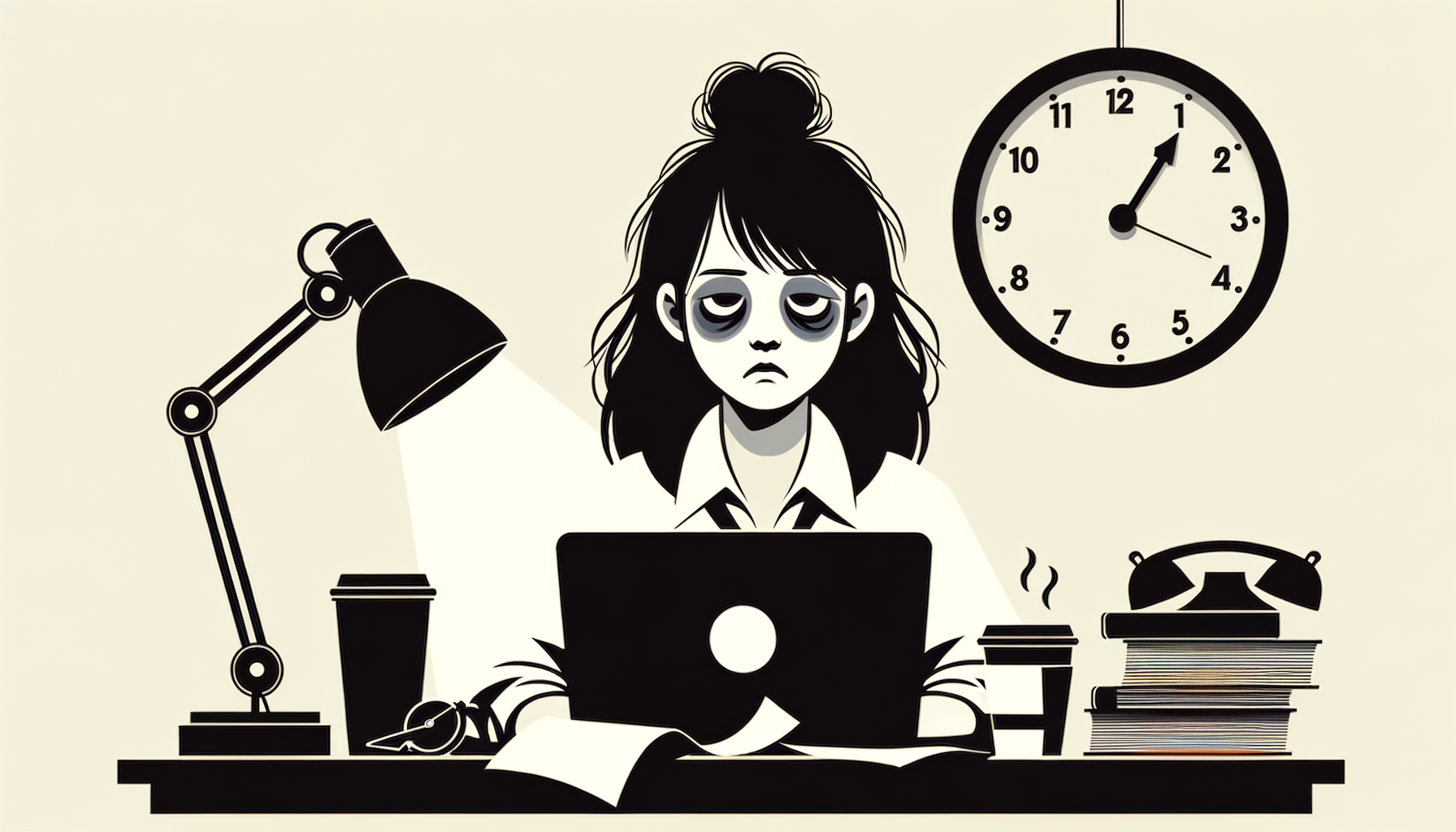Introduction
In the intricate tapestry of human existence, the threads of sleep and mental health are inextricably intertwined. This article delves into the profound correlation between these two fundamental aspects of our lives. It seeks to illuminate the often overlooked yet crucial link that binds the realm of slumber and the sphere of psychological well-being. As we navigate through the labyrinth of scientific research and empirical evidence, we will uncover how the quality and quantity of our nocturnal rest can significantly impact our mental equilibrium. This exploration promises to shed light on the importance of sleep in maintaining mental health and the potential repercussions of neglecting this vital physiological function.
Sleep Deprivation Effects

Sleep deprivation, a state of not obtaining adequate sleep, can have profound impacts on mental health. It’s akin to a thief in the night, stealthily robbing one of vitality, alertness, and cognitive function. The repercussions of sleep deprivation are not confined to physical fatigue; they infiltrate the realm of mental well-being, often leading to a cascade of psychological disturbances.
The first casualty of sleep deprivation is often mood. A sleep-deprived individual may experience heightened irritability, bouts of sadness, and a general sense of malaise. The world may seem less vibrant, less inviting. This is not merely a subjective experience; research has shown that lack of sleep can alter brain function in areas responsible for emotion regulation.
Moreover, chronic sleep deprivation can serve as a catalyst for more serious mental health disorders. Anxiety and depression, two of the most common mental health issues, have been strongly linked to poor sleep. The relationship is a complex one, with each condition potentially exacerbating the other, creating a vicious cycle that can be difficult to break.
Furthermore, sleep deprivation can impair cognitive function, affecting memory, attention, and decision-making processes. This cognitive impairment can lead to decreased productivity and increased risk of accidents, further exacerbating stress and potentially contributing to the development of mental health disorders.
In conclusion, sleep deprivation is not just a physical health issue; it is a significant contributor to mental health problems. Understanding this link is crucial for prevention and treatment strategies. Prioritizing sleep and addressing sleep problems can go a long way in promoting overall mental well-being.
Mental Health Connection
The intricate relationship between sleep and mental health is a labyrinth of interconnected pathways, each influencing the other in a ceaseless dance. Sleep, often viewed as a passive state, is in fact a dynamic process that plays a pivotal role in our mental well-being. It is during these quiet hours that our brain engages in a multitude of tasks, from memory consolidation to the regulation of emotions. A disruption in this process, whether it be insomnia or hypersomnia, can have profound implications on our mental health.
Insomnia, characterized by persistent difficulty in falling or staying asleep, is often a harbinger of mental health disorders. It is not uncommon for individuals grappling with depression, anxiety, or post-traumatic stress disorder to experience bouts of insomnia. The relationship, however, is not unidirectional. Insomnia can exacerbate these conditions, creating a vicious cycle that is difficult to break. On the other hand, hypersomnia, or excessive sleep, is also linked to mental health issues. It is often a symptom of depression and can also be a side effect of certain psychiatric medications.
The neurochemical processes that occur during sleep are also intricately linked to our mental health. During sleep, our brain produces serotonin and dopamine, neurotransmitters that play a crucial role in mood regulation. A disruption in sleep can lead to an imbalance in these chemicals, potentially triggering mood disorders. Moreover, sleep deprivation can impair the functioning of the prefrontal cortex, the brain region responsible for decision-making and impulse control, further exacerbating mental health issues.
In conclusion, the relationship between sleep and mental health is complex and multifaceted. It underscores the importance of adequate sleep in maintaining mental well-being and highlights the need for a holistic approach in the treatment of mental health disorders. It is not enough to treat the symptoms; we must also address the underlying issues, including sleep disorders, to ensure a comprehensive approach to mental health care.
Improving Sleep Quality
Enhancing the quality of one’s slumber can be a pivotal step towards fortifying mental health. A myriad of strategies exist to aid in this endeavor, each with its unique approach and benefits. One such strategy is the establishment of a consistent sleep schedule. By adhering to a regular pattern of retiring and awakening, the body’s internal clock, or circadian rhythm, can be synchronized, promoting more restful and restorative sleep. This regularity not only aids in falling asleep but also in waking up, making mornings less of a struggle.
Another technique to consider is the creation of a serene sleep environment. This involves optimizing your bedroom for sleep by maintaining a cool temperature, reducing noise and light, and investing in a comfortable mattress and pillows. The aim is to create a sanctuary that signals to your body that it’s time to unwind and sleep. Furthermore, it’s beneficial to reserve your bed for sleep and intimate activities only, as this strengthens the association between bed and sleep, making it easier to fall asleep and stay asleep.
In addition, the incorporation of relaxation techniques before bedtime can be beneficial. Practices such as reading, meditating, or taking a warm bath can help to calm the mind and prepare the body for sleep. It’s also advisable to avoid stimulating activities and substances close to bedtime. This includes vigorous exercise, caffeine, nicotine, and electronic devices. These can interfere with the body’s ability to fall asleep and achieve deep, restorative sleep stages.
Lastly, maintaining a healthy lifestyle can significantly improve sleep quality. Regular physical activity, a balanced diet, and limited alcohol intake can all contribute to better sleep. If despite implementing these strategies, sleep problems persist, it may be beneficial to seek professional help. Sleep disorders, such as insomnia or sleep apnea, can have serious implications for mental health and may require medical intervention. Remember, sleep is not a luxury, but a necessity for optimal mental health.
Conclusion
In sum, the intricate dance between sleep and mental health is undeniable, with each influencing the other in a complex, cyclical pattern. The absence of restful slumber can exacerbate mental health conditions, while such conditions can, in turn, disrupt sleep. This reciprocal relationship underscores the importance of addressing both aspects in a holistic approach to mental health care. By prioritizing sleep hygiene and integrating it into mental health treatment plans, we can potentially ameliorate the severity of mental health disorders and enhance overall well-being. The exploration of this link is far from over, with future research poised to further unravel the enigma of sleep and its profound impact on our mental health.





